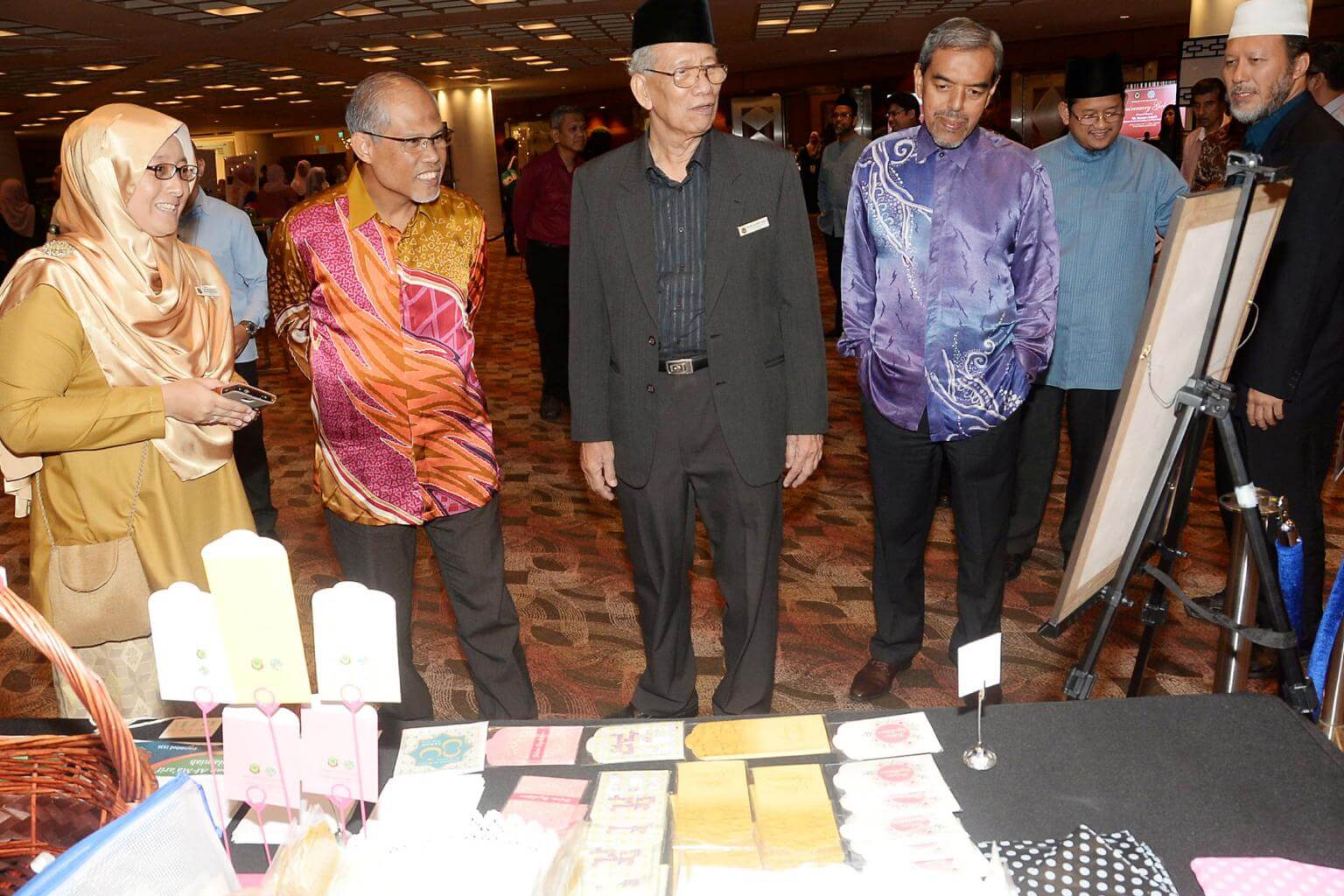Masagos: Singapore Muslims should look to their own religious leaders
Sign up now: Get ST's newsletters delivered to your inbox

Environment and Water Resources Minister Masagos Zulkifli (second from left) called on the community to develop and look to its own leaders.
PHOTO: BERITA HARIAN
Follow topic:
SINGAPORE - Singapore's Muslim community must develop its own scholars who understand the local culture, values and ethics, as well as Singapore's unique situation as a secular, multiracial, multireligious society, Environment and Water Resources Minister Masagos Zulkifli has said.
He called on the community to develop and look to its own leaders, saying these leading lights can counter "internet scholars who pop up like mushrooms after the rain, who are quick to judge one another with 'cut and paste' knowledge".
These local scholars and the madrasahs that nurture them should not just look back to an idealised past, but must look forward and contribute to wider society - as an earlier generation has done.
He was speaking on Friday night at the 80th anniversary of Madrasah Al-Maarif, one of six full-time Islamic religious schools or madrasah in Singapore that educates religious teachers for the community.
He noted the madrasah's founders were progressive - its students sat for the GCE - today's O Levels - in the 1960s and then A Levels in the 1970s, as they believed madrasah students must master religious as well as secular subjects.
Founder Fadlullah Suhaimi's son Kamil himself exemplified this - studying jurisprudence at Cairo's Al Azhar university before going on to study law at Lincoln's Inn in London - and returning to contribute as a lawyer and religious leader.
And Al Maarif graduate Hajbee Abu Bakar studied at the National University of Singapore before joining the National Library Board, where she is active in shaping the libraries of the future.
And fellow graduate Ms Siti Rahmah Mirza Abdul Karim is pursuing a doctorate in bioethics at Otago University in New Zealand and helping the community address emerging issues in the field.
Mr Masagos congratulated the madrasah for nurturing students who are active in various fields. He added that with this broad vision, madrasah graduates can help the community challenge exclusivist and extremist leanings that seek to influence how Muslims in Southeast Asia practise their faith, at a time when terror group ISIS is seeking to gain ground.

